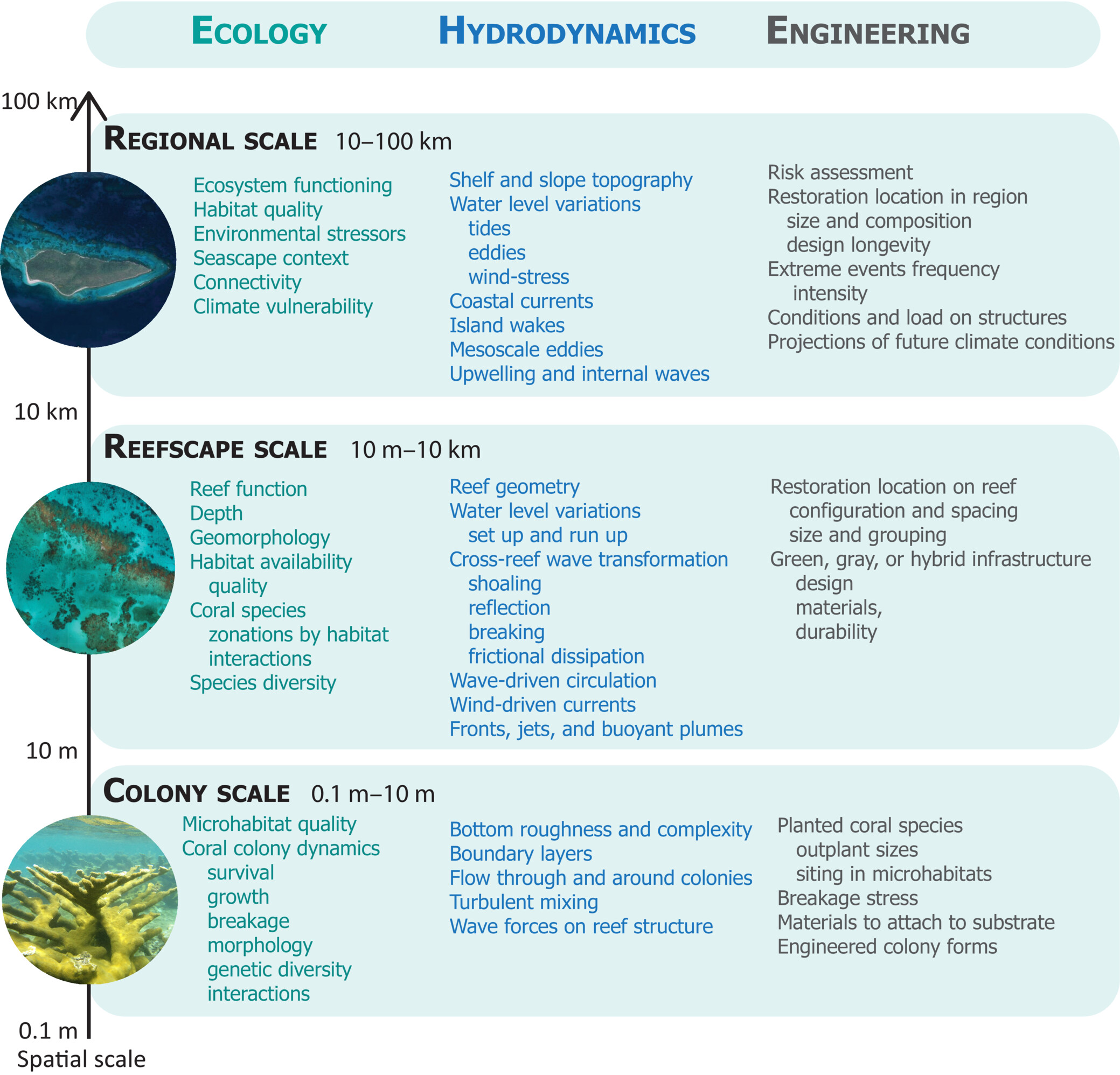
Coastal hazards and the associated risks to communities such as erosion, flooding, and storm damage can be enhanced by loss of natural coastal habitats. Natural ecosystems like salt marshes, coral reefs, and oyster reefs can provide protection from these risks – coral reefs alone provide flood protection benefits valued at over $1 million per kilometer for U.S. coastal communities. Shallow-water reefs act as natural submerged breakwaters that can reduce the amount of wave energy hitting the coastline, thus reducing the potential impact of storm systems and sea level rise to the coast. However, continued coral reef degradation lessens the reef structure’s ability to protect the coast from storm energy and flooding.
In a new publication, NCCOS scientists and partners outline a framework for designing and evaluating coral restoration projects for coastal protection that integrate perspectives and principles from ecology, hydrodynamics, and engineering. Coral reef research has largely focused on increasing habitat functionality and reef aesthetics to support tourism and fisheries, and unknowns remain around large-scale coral reef restoration for enhanced wave attenuation and coastal protection.
Addressing this knowledge gap will require scaling up reef restoration from the colony or reefscape scale to the regional scale. It will also require incorporating more engineering and hydrodynamics concepts along rapidly changing coastlines. Key considerations for planning successful future restoration projects include accounting for the wave impacts to vulnerable newly-outplanted corals, continuing to evaluate the restoration progress throughout the entire project, and incorporating regional projections of future climate conditions.
With rising ocean temperatures and increasing severity of storms, coral reef restoration efforts that strive for self-sustaining ecosystem recovery are more likely to be effective in the long term. This will require interdisciplinary collaboration, planning, and integration of natural processes into restoration projects, but can ultimately end with longer-lasting and effective ecosystem restoration efforts that also enhance coastal protection.
This work is part of the Coral Restoration: Developing Scientific Guidance to Support Coral Restoration Design, Implementation, and Monitoring project funded by NOAA’s Coral Reef Conservation Program.
Citation: Viehman, T. Shay, Borja G. Reguero, Hunter S. Lenihan, Johanna H. Rosman, Curt D. Storlazzi, Elizabeth A. Goergen, Miguel F. Canals Silander, Sarah H. Groves, Daniel M. Holstein, Andrew W. Bruckner, Jane V .Carrick, Brian K. Haus, Julia G. Royster, Melissa S. Duvall, Walter I. Torres, James L. Hench. 2023. “Coral Restoration for Coastal Resilience: Integrating Ecology, Hydrodynamics, and Engineering at Multiple Scales.” Ecosphere 14(5): e4517. https://doi.org/10.1002/ecs2.4517
